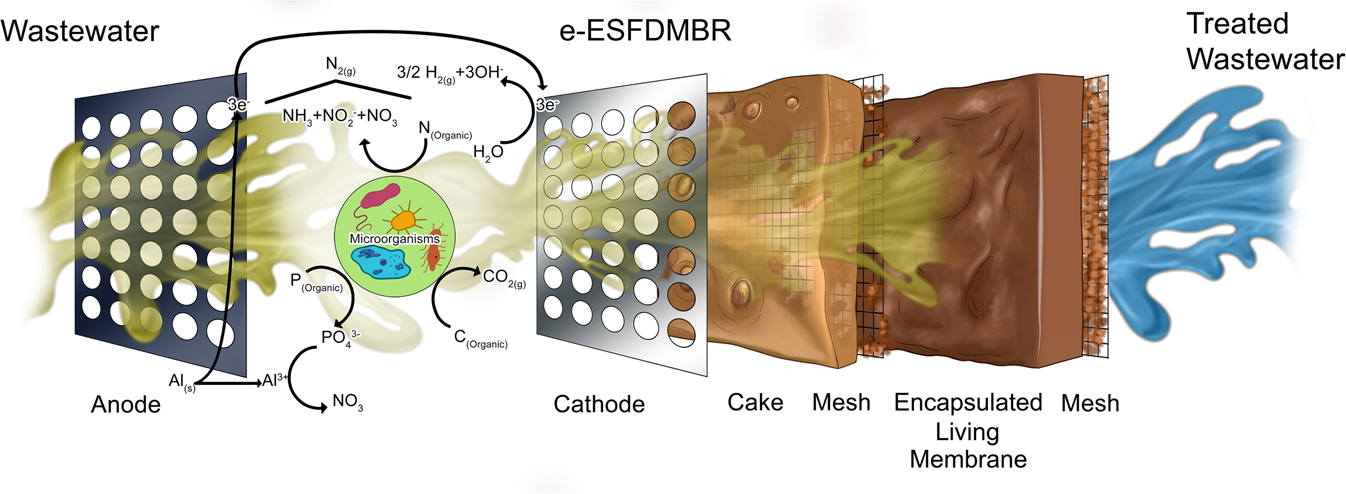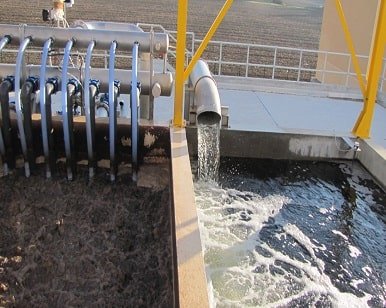Understanding the Basics of Membrane Bioreactor Systems for Wastewater Management
Understanding the Basics of Membrane Bioreactor Systems for Wastewater Management
Blog Article
The Benefits of Membrane Layer Bioreactors in Sustainable Wastewater Monitoring
Membrane bioreactors (MBRs) stand for a pivotal improvement in sustainable wastewater management, effectively merging organic therapy with advanced membrane layer purification modern technology. As the need for sustainable solutions intensifies, exploring the complex benefits of MBRs might disclose unanticipated effects for the future of wastewater treatment systems.
Summary of Membrane Layer Bioreactors
Membrane bioreactors (MBRs) represent a considerable improvement in wastewater therapy technology, integrating organic destruction with membrane layer filtering to improve the performance of the therapy process. This cutting-edge system combines the benefits of standard turned on sludge processes with membrane technology, enabling improved solid-liquid separation. MBRs utilize semi-permeable membranes to different cured water from biomass, resulting in high-grade effluent that can be recycled or safely discharged into the environment.
The operational design of MBRs normally involves a bioreactor where bacteria break down organic matter, adhered to by a membrane layer system that filterings system the combined liquor. This arrangement not just lessens the impact of the therapy center however also permits higher biomass concentrations and decreased hydraulic retention times. MBRs are capable of treating a larger range of impurities, consisting of virus and nutrients, making them appropriate for various applications, from local wastewater treatment to industrial effluent processing.
The assimilation of MBRs right into wastewater management systems is a sign of a growing fad in the direction of effective and lasting practices in environmental engineering. Their capability to create premium effluent while lessening area demands placements MBR modern technology as an essential player in modern-day wastewater therapy options.
Enhanced Effluent High Quality

The membrane purification procedure acts as a physical barrier, allowing the retention of microbes and particulate matter, which contributes to a more clear and cleaner effluent (Membrane Bioreactor). MBRs run at higher biomass concentrations than traditional triggered sludge systems, advertising a lot more reliable biodegradation of pollutants. This brings about a decrease in biochemical oxygen demand (FIGURE) and overall suspended solids (TSS) levels in the final effluent
Furthermore, MBRs demonstrate excellent efficiency in treating difficult wastewater make-ups, such as commercial effluents and wastewater with high nutrient tons. Therefore, the effluent produced is commonly of higher top quality, enabling even more flexible disposal choices and lowered environmental effect. Ultimately, the enhanced effluent high quality achieved through MBR technology emphasizes its critical role beforehand lasting wastewater management practices.
Water Reuse Opportunities
The high-grade effluent created by membrane layer bioreactors (MBRs) opens substantial possibilities for water reuse in various applications. MBRs properly get rid of pollutants, including microorganisms, put on hold solids, and organic issue, resulting in treated water that satisfies or exceeds regulatory requirements for reuse. This top quality enables YOURURL.com the execution of water recycling efforts throughout diverse sectors.
One noticeable application is in farming, where treated wastewater can be made use of for irrigation, advertising lasting farming methods while saving fresh water resources. Furthermore, MBR-treated effluent can be made use of for industrial procedures such as cooling, cleaning, and as a process water source, significantly lowering the demand for safe and clean water go to this site in these operations.
In city environments, MBRs help with making use of redeemed water for landscape irrigation, commode flushing, and other non-potable usages, adding to the total resilience of water system systems. The assimilation of MBR modern technology in decentralized systems help in taking care of local water demands, specifically in water-scarce regions.
Lowered Environmental Influence
How can the adoption of membrane layer bioreactors (MBRs) add to a reduced ecological effect in wastewater management? MBRs dramatically enhance the therapy performance of wastewater while minimizing environmental disruptions. Membrane Bioreactor.
Furthermore, MBRs operate at lower hydraulic retention times contrasted to traditional systems, causing smaller treatment plant footprints. This compact layout decreases land use, thereby preserving all-natural habitats and biodiversity. The process additionally generates much less sludge than traditional techniques, reducing disposal challenges and lowering greenhouse gas discharges connected with sludge monitoring.
In addition, MBRs facilitate the recovery of important sources, such as water and nutrients, adding to a circular economic situation. By allowing water reuse for irrigation or industrial processes, MBRs help alleviate freshwater shortage, thus advertising sustainable water make use of practices. Eventually, the adoption of MBR modern technology represents a considerable stride towards minimizing the environmental impact of wastewater monitoring systems.
Economic Advantages of MBRs

Furthermore, MBRs assist in the manufacturing of top quality effluent, which can be recycled for various applications, such as agricultural watering and industrial processes - Membrane Bioreactor. This reuse capacity can considerably lower water purchase costs, supplying an economic motivation for industries dealing with stringent water laws
The small design of MBR systems also leads to lowered land requirements, which is specifically important a knockout post in urban locations where realty is pricey. By lessening area, municipalities and sectors can reduce land procurement and maintenance expenditures.
Furthermore, MBRs usually require less constant maintenance and have a longer life expectancy than traditional systems, additionally adding to cost financial savings. In recap, the financial benefits of MBRs-- ranging from decreased functional costs to land cost savings and effluent reuse-- make them a compelling choice for lasting wastewater management, providing both lasting and immediate economic advantages.
Conclusion
In addition, MBRs contribute to decreased ecological effects with compact styles and reduced sludge generation. Economic advantages further boost their viability, making MBRs a promising option for attending to the obstacles of wastewater therapy and advertising lasting source management.
Membrane bioreactors (MBRs) stand for a pivotal advancement in lasting wastewater administration, successfully merging biological treatment with innovative membrane filtering technology.Membrane layer bioreactors (MBRs) stand for a considerable innovation in wastewater therapy modern technology, integrating organic deterioration with membrane purification to boost the performance of the treatment procedure.Accomplishing improved effluent high quality is one of the most considerable advantages of utilizing membrane layer bioreactors (MBRs) in wastewater treatment.Additionally, MBRs demonstrate superb performance in dealing with tough wastewater structures, such as industrial effluents and wastewater with high nutrient loads.Integrating membrane bioreactors (MBRs) right into wastewater management not just minimizes environmental effect yet likewise presents considerable financial advantages.
Report this page